I was 16 when I discovered performance artist (or really, über artist) Chris Burden. I’d opened a library book to a black-and-white photo of a young, shirtless man crawling across a nighttime parking lot that was covered in glittering, broken glass. Arms behind his back. Rolling side to side. Getting cut up. My god, I thought.
I turned the page. Another photo: the same man nailed to the back of a Volkswagen. Then another: the man in an art gallery after being shot in the arm by a .22 caliber rifle. Artist Chris Burden, the book said. Something clicked in my brain; at that moment, my idea of what art was—what it could be—was never the same.
I had read some of Conceptual Art’s history, but obviously not much about Performance Art, so the discovery of Chris Burden was a revelation. His work was the first time I’d encountered the idea of a body doing something uncodified—that is, not Dance, Drama, Oratory, Circus, but Other—as art. Chris Burden had, I realized, made up his own art form, and not just once, but over and over again. There was no precedent for his pieces; they’d fallen from the sky, alien, unpredictable, dangerous, primal, silent.
For me, his performances were about suffering. In every photo, Burden was alone, without an audience, and his face was neutral. Nothing forced. No emotional mask. Placid. An Everyman, with whatever pain or discomfort he was feeling suppressed, held captive. This resonated with me, with my own childhood cycles of pain—separation, dispair, guilt, pennance. Burden had been called a Body Artist, but in truth he was a Pain Artist: his suffering encouraged the projection of our pain, our sympathy, even our empathy, onto his waiting countenance.
Burden’s death on May 10, 2015 was a terrible blow, the loss of a hero. I never wanted to emulate him—his work was too perfect and unthinkably painful to emulate—but I chose the same alma mater as his, in part to be “near” him and his history—to perform in the same school art galleries where he had quietly bled, suffocated, cried, and discovered, alone.
When the John White Gallery invited me to perform at Ventura Art Walk in July, 2015, I decided to crawl shirtless across broken windshield glass, just as Burden had in his 1973 piece, Through The Night Softly. Despite my love of his work, I had never done a piece that would be intentionally damaging to me physically—but I needed to know firsthand something of what he had felt, of what he had experienced in his pain.
My wife KayDee and I drove to Ventura, laid out a 12-foot-long swath of broken glass in the gallery’s parking lot, and then lined it on both sides with Matchbox cars—an homage to Burden’s many car-related performances and sculptures.
It was a hot day—about 91 degrees. Sun was blazing.
The piece began. I came running out from behind the gallery and sprinted across the parking lot with a 100-pound steel car door over my head. I used the door as an umbrella, then a racetrack, a seesaw, a drum, and then a stage. I climbed onto it wearing three white tanktops, which I pulled off one by one and threw into the sky like birds, chanting “BURD, BURD, BURD.”
As I chanted “BURD” and pulled off the last shirt, a white seagull landed behind me on the asphalt. The audience and I were stunned. Time slowed. It was Burden, I know it was, in feathered psychopomp regalia.
I walked to the start of the glass farthest from the audience, lay down, and begin to crawl. The asphalt was searing—I later learned it had been between 130 and 140 degrees Fahrenheit—and the grinding of the glass shards was unbearable. I have multiple tattoos, so I know something about persisting through enduring pain, but this was like nothing I had experienced. My chest was being grinded, stabbed, burned—I was on fire with tunnel vision. I had wanted to keep a placid Burden face, but it was impossible, so I submitted to animal cries as I pushed forward, crawling but unable to use my hands on the melting asphalt, the glass cutting my chest like ribbons, brain screaming for me to stop. The white seagull watched me silently from the gallery roof—it was my confessional and our communion. Sweat ran into my eyes and my hands were shaking like crazy. More animal cries escaped—they were uncontrollable, cries for Burden, the cries he had refused to let out back in 1973.
When I reached the last of the glass, I crawled across asphalt, through the car door’s empty window, and emerged out the other side. I stood up, dizzy and weak and shaking from adrenaline. My chest was bright red, mottled, and cut from the asphalt and glass. I looked down and saw glittering shards sticking out of ribs and a line of blood streaming from my elbow.
I picked up a goodbye Matchbox car, kissed it, and chucked it onto the gallery’s roof—but I was too spent. The throw was short—the car rained down from the roof and landed back on the asphalt. I walked to it, kissed it, and threw it again. Again, too short. My arms and legs were rubber. I picked it up once more. Kissed it. Threw it. It flew up and over the roof’s peripet—then nothing. Silence. None of us heard the car land. It never came down—flown into the heavens.
Thank you, Chris Burden. April 11, 1946—May 10, 2015.
Photos of the glass crawl here.
And see a great recap of the piece on The Polina Hryn Show here.
Tags: chris burden, crawl, glass
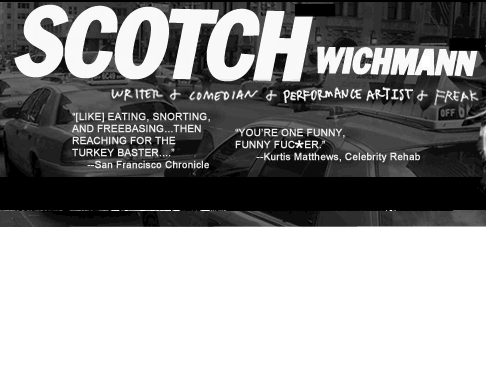
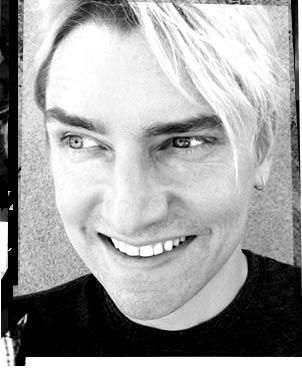
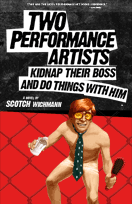

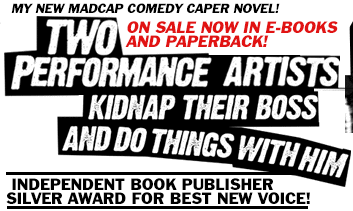


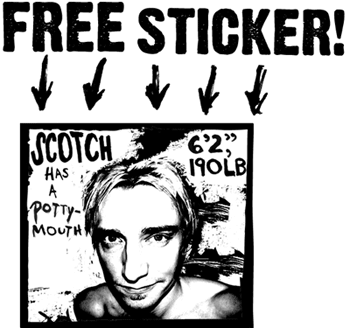
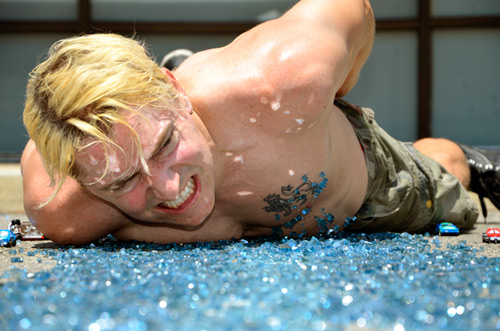
May 20th, 2019 at 11:14 am
I found your glass crawl piece on google – yikes. Good job.
April 14th, 2019 at 11:16 pm
Wish I could’ve seen that glass, you wild bastard!
February 4th, 2019 at 5:00 pm
Ouch, man!
March 5th, 2016 at 8:00 pm
AMAZING SHIT!!!
July 31st, 2015 at 5:43 pm
Thank you, Cassidy! If you’d been there, you would’ve seen me afterward in my underwear, getting hosed down by my wife to get the glass and asphalt off, then bathing in a half bottle of Bactine. The wash-off was practically a performance by itself.
July 31st, 2015 at 9:00 am
The BURDen was lovely. I so wish I could have been there. Looking forward to the next one (although there probably won’t be another next one of these). C.M.